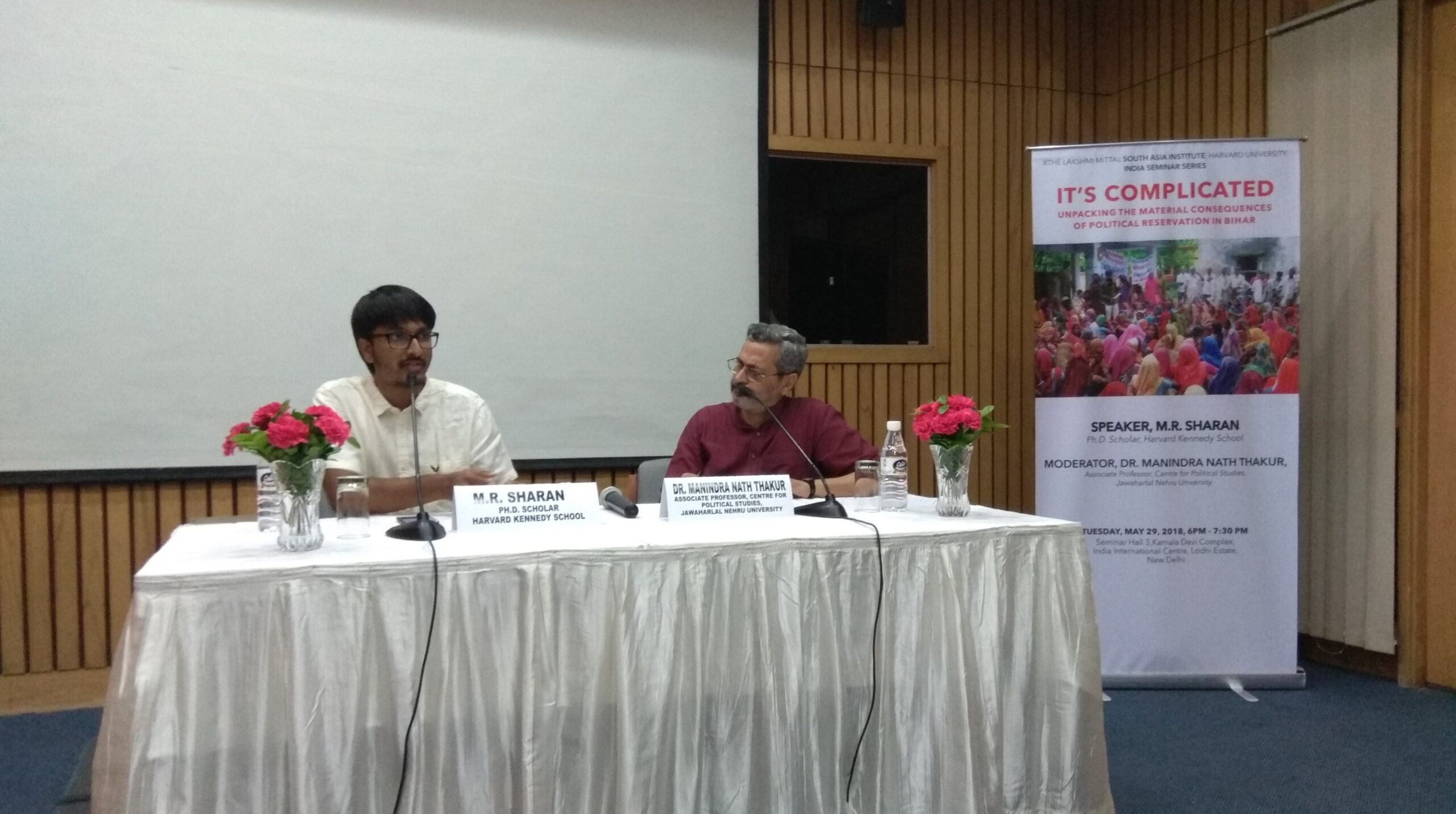By: Ankita Sukheja

This seminar focused on the impact of political reservation in favor of the Schedule Castes (SCs) in the north Indian state of Bihar, by looking at inequality in private wealth and access to public goods. The research presented preliminary findings from 45,000 villages and over 2 crore rural households across the state.
M.R. Sharan, a PhD candidate at the the John F. Kennedy School of Government at Harvard University, presented joint work with Chinmaya Kumar, University of Chicago on elections in Bihar at a seminar on May 29, 2018, titled, “It’s Complicated — Unpacking the Material Consequences of Political Reservation in Bihar.” He was joined by Dr. Manindra Nath Thakur, Associate Professor at the Centre for Political Studies, Jawaharlal Nehru University.
Sharan and Kumar’s work investigates how political reservation in favor of Scheduled Castes (SCs) in Bihar affects inequality in private wealth and access to public goods. It presented data and findings for access to public goods, collected from 45,000 villages across all of Bihar, and analysed data on private wealth for over 2 crore rural households in the state.
The preliminary findings of the study showed that while reservation for SCs does not affect overall provision of resources, it shifts benefits towards SCs. In particular, more public goods are targeted to the main SC village and there is an increase in private wealth of those closest to the leaders. The results were primarily driven by re-election incentives and same jati (subcaste) preference of elected leaders for people from their own social strata. The study further proposed that the benefits of the political reservation are not uniform and depend on many factors like jati structures and the chances of re-election, creating a complex web of winners and losers.
An interesting part of the research was the use of night lights as a variable. For each Gram Panchayat, a population-adjusted share of night lights, emanating from the main SC village was constructed and the impact of reservation on this measure was assessed. The innovative approach to documenting economic activity at the village level was well received at the seminar. The study also drew a lot of comments and questions: why was there no interdisciplinary approach in the study? Why was there not more pandering by SC Mukhiyas (village-council head) to the non-SCs, since they formed the dominant voting group in the population? There were also discussions of a similar paper with focus on female reservation. Apart from the data and questions, many stories from the field and anecdotal evidence were also shared by Sharan and Professor Thakur.
The panel closed the discussion with some interesting propositions. Sharan talked about advancing this study to understand whether these trends hold even after the Mukhiyas complete their second term. Other thoughts included exploring the role of electoral competition and whether it should be made mandatory to have reservation for at least two terms across the country.
The study has captured an interesting development in its early stages, given that reservation at the Gram Panchayat level is a relatively new development, introduced only in 2006 in Bihar. This was a time when there were very few elected Dalit Mukhiyas (~ 1 %) in the state. Prof Thakur also noted that since M.R. Sharan was not originally from the state of Bihar, the research provides a valuable outsider perspective to grassroots impact of political reservation in Bihar.
